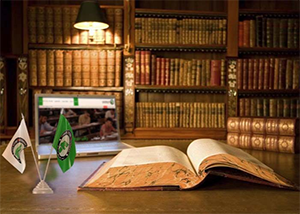Sex Education for Students: A Moral Necessity

Not only in Syria, but introducing sex education in Arab schools has become a sensitive issue fraught with social and religious minefields. According to statistics compiled by the Family Affairs Office of the Syrian Future Movement(SFM), there is no systematic, well-studied scientific sex education taught in primary and secondary schools in the liberated areas of northern Syria. Only 60% of primary and preparatory schools teach sex education, often integrated into religious education, science classes, or occasionally addressed by experienced teachers during class time. Strangely, over 80% of surveyed teachers in liberated areas support the idea of teaching sex education, subject to religious and social standards. Surprisingly, 30% of parents were cautious about it, while 45% agreed with teaching sex education. Our work, originally meant to include middle and high school students, remains ongoing until the article is published.
On the Academic Sex Education: Regarding the importance of incorporating sex education into the school curriculum, we must recognize how our society and the world around us are influenced by media, culture, and Western civilization. Two decades ago, students primarily learned about sexual matters from their peers. However, today’s open digital space makes the internet an irresistible source of unguided and harmful information, causing significant confusion in our society regarding boundaries, acceptable behaviors, and what is deemed taboo. Thus, there is an urgent need for scientific, psychological, legal, and religiously guided sex education in schools, particularly since our children, like all children, undergo physical and sexual developmental changes, coupled with easy access to unguided information that can negatively impact them.
Moreover, it is crucial to have professional psychological counselors alongside educators to impart correct moral, religious, and cultural values to students.
Four Aspects of Student Sex Education: First Aspect: The medical aspect involves scientific knowledge about physical and physiological developments and physical needs during a student’s school years.
Second Aspect: The psychological aspect involves self-perception, body awareness (male or female), understanding scientifically accurate gender differences, and the real roles students play today. It is about supporting students’ self-acceptance within societal boundaries.
Third Aspect: The social aspect clarifies students’ relationships with their surroundings, including friends, family, relatives, and the opposite gender, especially during adolescence.
Fourth Aspect: The ethical aspect sets clear boundaries between what is permissible and what is not in behavior, acknowledging feelings, sensations, and physical changes. Not all behaviors are acceptable, and here lies the role of education and ethics in defining concepts clearly.
Sex education begins in early childhood education with simple, age-appropriate scientific concepts suitable for children’s understanding, focusing initially on biological differences between male and female bodies, respecting body privacy, ownership, and avoiding unauthorized access to a child’s privacy. This progressive approach continues from elementary through secondary school, adapting teaching methods suitable for each age group’s comprehension level.
In Syria, it is customary to maintain segregation between male and female students, especially in lower grades concerning sex education. This critical stage involves bodily changes, where students may feel scrutinized by the world around them. Thus, separating genders during sex education classes respects their privacy and encourages students to ask questions freely.
Sex education programs in schools typically span 10 to 12 sessions per academic year, helping students feel that these changes in their bodies are natural and have occurred to their peers and family members before. Educational counselors play a crucial role in strengthening students’ personalities and helping them accept these changes, ensuring every individual feels accepted within societal norms.
To overcome the barrier of embarrassment surrounding sex education, lectures should be delivered by same-gender professionals and consultants in the field, emphasizing cultural sensitivity and privacy. Religious material can be used if needed, adhering to cleanliness laws and major events. During lectures, students anonymously write queries that are collected and answered without mentioning names.
Recommendation: While the school’s role is vital, the family’s role is even more critical. Therefore, it is essential to consult specialists to guide parents on misconceptions and to ensure their children’s sexual education is appropriate. Parents must remain vigilant about changes their children are going through, as they are the primary source of information to prevent them from seeking alternative sources.
In conclusion, at the Family Affairs Office of the Syrian Future Movement(SFM), we recommend introducing sex education from early childhood and focusing on grades five through nine within schools. Collaboration with psychologists and sex education experts is crucial for curriculum development and teaching methods. We also recommend leveraging the experiences of UNESCO, UNICEF, and other global organizations in this field. Furthermore, establishing a strong bond of trust between parents and schools through educational forums ensures correct information delivery and prevents misuse by societal bad influences.
Wahiba Al-Masri
Family Affairs Office
Research and Studies Department
Articles
Syrian Future Movement (SFM)






